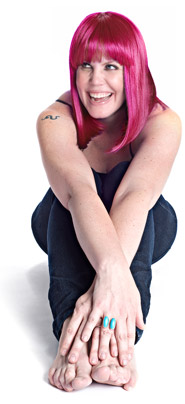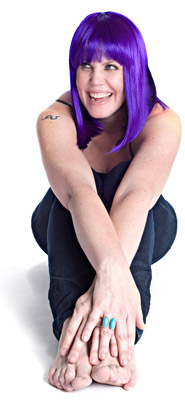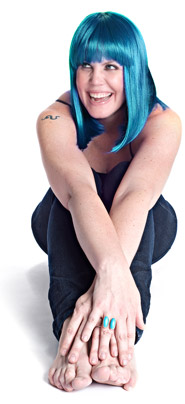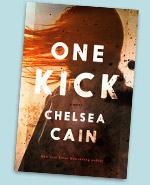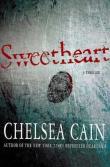FACT: Deaths attributed to “loud sounds” since 1970: 34,831.
- FINAL EXITS by Michael Largo
FACT: 99% of all "mazes" can be solved if you walk to the right every time you have to choose between left and right.
FACT: Halogen floor lamps caused approximately 270 fires and 19 deaths per year.
– FINAL EXITS by Michael Largo
FACT: More people are killed annually by donkeys than die in air crashes.
FACT: Non-dairy creamer is flammable.
FACT: Total asphyxiations attributed to rice cake eating since 1965: 1,601.
– FINAL EXITS by Michael Largo
FACT: One of the largest carriers of hepatitis B is dinner mints.
FACT: Nutmeg is extremely poisonous if injected intravenously.
FACT: A group of unicorns is called a blessing.
FACT: Since 2001, 987 children have been killed while buying ice cream.
– FINAL EXITS by Michael Largo
FACT: Poets have a life span fifteen years below average.
– FINAL EXITS by Michael Largo
FACT: Three people die each year testing if a 9V battery works on their tongue.
FACT: In 2003, 24 people died from inhaling popcorn fumes.
– FINAL EXITS by Michael Largo
Faint of Heart, Chapter Three
CHAPTER THREE:
The back deck looked out over Pirate Cove and, beyond that, the Pacific Ocean. When visibility was good, Archie could see whale spouts. When visibility wasn’t good, he still saw them, or at least he could convince himself that he did. Each whale expelled water in a unique pattern, almost like a fingerprint. Gray whales had two blowholes, so they produced a heart-shaped spout.
The house was on a cliffside, over water that churned over lava beds day and night. Archie liked that sound. From the back of the house it was enough to drown out the whale watching traffic on Hwy 101. The visibility wasn’t good today. A low mist hung over the ocean, and settled into the crevices of trees. The air prickled his skin with a pleasant chill. Archie could taste the ocean salt, the brine. In the summer the whole town smelled like sunbaked seaweed and saltwater taffy. A cargo ship, as small as a penny, crawled across the horizon, and then he lost sight of it as it disappeared into the mist. Gulls fought for space on the rocks. Sea lions barked.
Henry was watching him. Archie could always feel when Henry was watching him - it was like a sixth sense. Even when he’d been in a hospital bed, in a coma, he’d known, somehow, that Henry was there.
“You made good time,” Archie said.
Henry’s hulking figure appeared at Archie’s side. He sank into the wooden deck chair next to Archie’s, exhaling as he sat. He scratched the bristles on the back of his head. The chair creaked. Henry sat forward. He squinted out at the view and then glanced up at the sky. “You know it’s raining, right?”
“It’s misting,” Archie said. “That’s what we call it when it happens in coastal towns. Misting.”
It was May in the Pacific Northwest, and it was 48 degrees. Earlier in the day it had been in the low-fifties, and that had seemed nice.
Henry’s glasses had fogged up. He took them off and cleaned them with his shirt. “So you’re just sitting here, in the rain?”
“Yeah.”
He put the glasses back on. “How long have you been doing that?”
“A little while.”
“To what end?”
“I’m whale watching.”
“Jesus Christ,” Henry said.
Archie pointed at a white spout in the distance. “There’s one,” he said.
Henry sighed. “That’s not a whale,” he said. His eyebrows were the same thick salt and pepper hair as his mustache. His glasses had already fogged up again. He peered over them at Archie. “That’s spray from a wave.”
Archie didn’t really care one way or another. That was the nice thing about whale watching. The stakes were low. “I guess we’ll never know,” he said.
They watched the ocean for a few minutes. The waves crashed. The ocean churned. The gulls squawked. The container ship appeared again and then disappeared again. Henry got impatient and stood up. He leaned forward when he did it, like it took a lot of effort, and made the same sound he’d made when he sat down. He was wearing a light waterproof jacket and it was unzipped and Archie caught sight of the gun under his arm. Henry carried his service weapon in a leather shoulder harness. He said it was easier on his back, but Archie suspected he wore it because it made him look cool, like a TV detective. Archie had always preferred a belt holster. He still had the holster, somewhere. But not the gun.
Henry patted Archie’s shoulder. The early evening light made the beaded rain on his jacket look like sequins. “Come on,” Henry said, heading toward the house. “I’ll meet you inside.”
Archie lived in a 487 square feet two bedroom house that had been a motel bungalow at some point, one of those places that people stayed in the Era of the Automobile when they needed to get from the Sea Lion Caves to Cannon Beach and needed to spend the night in between. The bedrooms were tiny, the kitchen smaller, the electric stove set off the smoke alarm every time it was used, one of the two bathrooms didn’t have heat, and the house was on the shoulder of the highway. But the house had a wood stove, and good view from the kitchen table and the dining room and the cold bathroom, and if you could dodge across the highway it was walking distance from a bank and a liquor store and a dive bar with karaoke. And then there was the deck. The deck wasn’t actually attached to the house. It was twenty steps away from the back door, down a grassy mud-slick slope. Archie shared it with the other tiny house that had at some point been part of the motel. But no one ever stayed there. At least no one that Archie had ever seen.
Technically the house wasn’t Archie’s. It was an AirBNB. But he rented it most of the year, and when he didn’t, the owners rented it to other people, which suited Archie just fine.
Henry wiped the mud off his cowboy boots on the back stoop and let himself inside. Archie was wearing slippers. He went days sometimes without putting on real shoes. The slippers were suede, lined with shearing, darkened by the rain. So Archie stepped out of them and left them inside the back door.
The back door opened into what Archie called the dining room, but in truth was just part of the living room, with a dinette table and red vinyl chairs. The living room part of the living room had a tan sofa and a pressboard end table. There wasn’t room for a coffee table, or anything else. Archie could walk from the back door to the front door of the house in eight steps.
Henry was in the living room. “You still don’t have any stuff,” he said.
The house was full of stuff. Vacation house kind of stuff, stuff staged by the owners, or left by renters over the years. Framed posters of breaching whales, old board games. A Japanese glass fishing buoy the size of a human head tressed up in netted rope hung in the corner of the kitchen, next to the refrigerator. But Archie knew what Henry meant. Personal effects. You could tell a lot about a person from their personal effects. You could build a profile. Archie didn’t have stuff. Not anymore.
“The kids have stuff,” Archie said. “In their room.” They came to visit every other weekend when he was in town. But they were getting older, and had activities, and friends, and Archie wanted them to have lives, so sometimes - during soccer season or when school projects were due or when he knew a birthday sleepover was coming - he said he was traveling, even when he wasn’t. It was easier for them that way.
Henry hadn’t taken off his jacket. Archie wasn’t wearing a jacket. He didn’t mind getting a little wet, and it had been nicer when he’d first sat down. Now his clothes were damp against his skin. Even his socks felt spongy. He had been sitting in the backyard for a long time. He crossed to the wood stove, opened it, and put another log on the fire. The house didn’t have forced air. It had the wood stove and a few electric heaters affixed to the baseboards that Archie didn’t like to use because they made the house smell wrong.
“What do you do all day?” Henry asked, looking around the room. “Besides whale watch.”
“I read,” Archie said. “I do puzzles.”
Flames crackled around the dry wood, emitting a satisfying orange heat as Archie stoked the fire.
Archie had a 5000 piece ocean puzzle half completed on the dinette table right now. It was a photograph of ocean. That’s it. Just water. There was supposed to be a single seagull flying above the horizon line, but that piece was missing. So technically it was a 4999 piece puzzle. That was fine with Archie. He’d already put the entire puzzle together without it a couple of times.
Henry was still standing. He seemed uncertain.
“Do you want a drink?” Archie asked. It was 6PM. Henry didn’t drink anymore. But it seemed like something people said in situations like these.
Henry reached for a book from a shelf built into the wall. “Read anything good lately?” he asked. Which was another thing that people said in situations like these. Henry turned the book over in his hands. The book was called “Pirates Can Be Polite.” It was a kids’ picture book. Henry raised a skeptical eyebrow. “About…pirates?” Or…” He took another book off the shelf. “…The best hiking trails along the Oregon coast for families?”
“Some good hikes in that book,” Archie said.
“You don’t hike,” Henry said.
“I like to read about hikes.” Archie got a beer out of the fridge. The closest grocery store was twenty minutes away, but there was a liquor store fifty steps south of his house. The Coast was interesting like that.
The fire crackled and hissed. Archie took a pull on the beer. The fridge didn’t keep anything very cold.
The books on the shelf had come with the house. Hiking Trails for Creaky Knees. Hiking for Beer Lovers. Night Hiking. Oregon Hiking. Zen Hiking. Hiking with dogs. The living room shelves were stacked with books like that, vacation books, nautical books, bird watching books, books about local history.
Henry waited.
“Look in the box,” Archie said. The file box was under the dinette table.
Henry bent down and peered under the table and then moved the chair and slid the box out and then lifted it with a grunt up onto the seat of the chair.
Archie had written a warning in big letters with a black sharpie. “Dad’s Box.” Sara and Ben knew never to open it. They had grown up knowing their father had secret places, places they weren’t allowed.
Henry lifted the lid off the box, as Archie stood in the kitchen doorway, watching. Henry read the titles out loud. “Psychopathy and the Psychosexual Predator,” “Stages of Sexual Deviancy. Sexual Sadism. Psychosocial and Psychosexual Development, a comparative analysis.” He looked up at Archie. “So you do have stuff.”
“I have library books.” There was a library in Lincoln City, which was just a half hour up the coast. He could check out books online from the central library in Portland and they would ship the books to his local branch. “I’m working on a paper.”
“A paper.”
“There’s a conference in Brussels,” Archie said. “They’re flying me out. To present the paper.”
Henry put the lid back on the box.
The conference was on Psychopathy and Sexual Deviance. Archie was a featured presenter. He could always pack a room. The great Detective Archie Sheridan. The man who’d caught the Beauty Killer, Gretchen Lowell. Never mind that she’d escaped every time he’d locked her up, that she’d kidnapped and tortured him. Gretchen was beautiful. And beauty was power. And he was the guy who’d sacrificed everything to chase her. That was the story. That was his role. Archie had come to understand this, years ago. There was no escape from the part he had been cast in.
“It has nice parks.”
“What?”
“Brussels,” Henry said. “It has nice parks.” The orange light from the fire cast shadows on his face. There was something different about him, something that Archie couldn’t quite put his finger on. He was still a big man, bigger than Archie by every measure, but there was something less solid about him, as if his center of gravity had shifted.
“Why are you here?” Archie asked.
Henry had called from the road with some concocted story about having had a fight with Claire, needing to come to the coast to clear his head. Archie knew it was a lie. He figured it was pretense to come check in on him.
Now he wasn’t so sure.
The fire crackled. Henry walked over and took the beer from Archie’s hand and took a long drink.
Archie didn’t say anything. He just watched. The house suddenly felt very small. The rain had picked up, enough that Archie could hear it beating against the windows, like oil popping in a skillet.
Henry handed the bottle back to Archie. It felt considerably lighter.
“I need your help,” Henry said.
The words hung in the air between them.
Outside, there were whales. Humpbacks and Blues and Grays. A Gray Whale pod lived in Depoe Bay year-round, feeding a half mile off shore. Archie had learned to recognize them by name.
Archie set the beer down on the kitchen table next to the half-assembled puzzle and headed toward his bedroom.
“Where are you going?” Henry asked.
“To put on my shoes,” Archie said.
- Chelsea's blog
- Login to post comments
Recent Posts
- Heartsick named in the top 6 serial killer books by S.A. Cosby in the NYT
- Fancy French-y retreat in Collioure, France
- Last Minute Zoom Writing Hootenannies
- Book Riot names HEARTSICK one of the Top Ten Mystery Books Set in the Pacific Northwest
- Chelsea's Law & Order SVU drinking game
- It's not about the moths.
- I Don't Want to Lose
- I Don't Want to Lose
- Want to go on vacation with me?
- Wave!
Archive
- April 2013 (1)
- August 2013 (5)
- September 2013 (1)
- October 2013 (1)
- December 2013 (1)
- June 2014 (1)
- September 2014 (1)
- July 2015 (2)
- April 2016 (1)
- June 2016 (1)
Chelsea Cain | Website by Dorey Design Group

